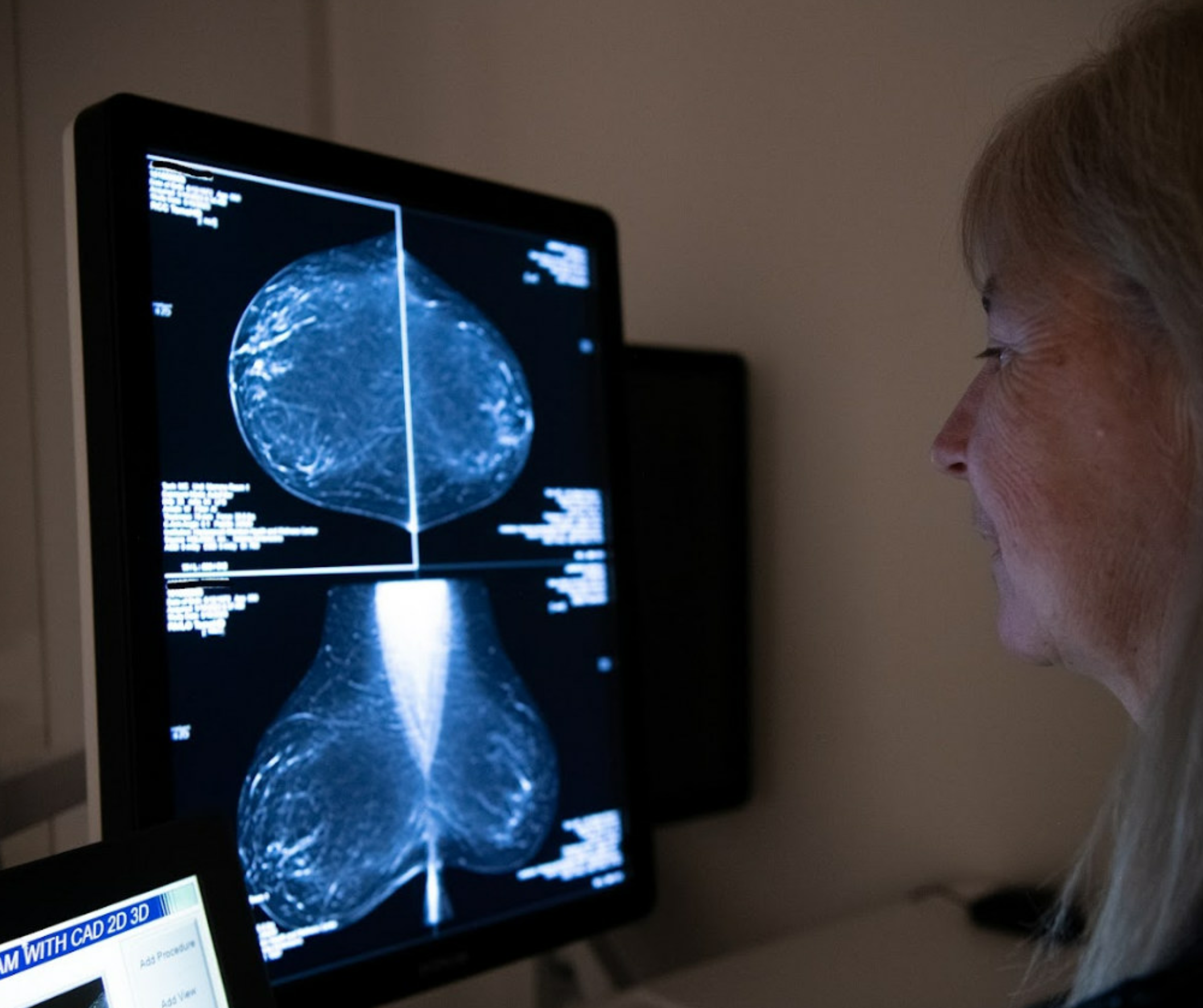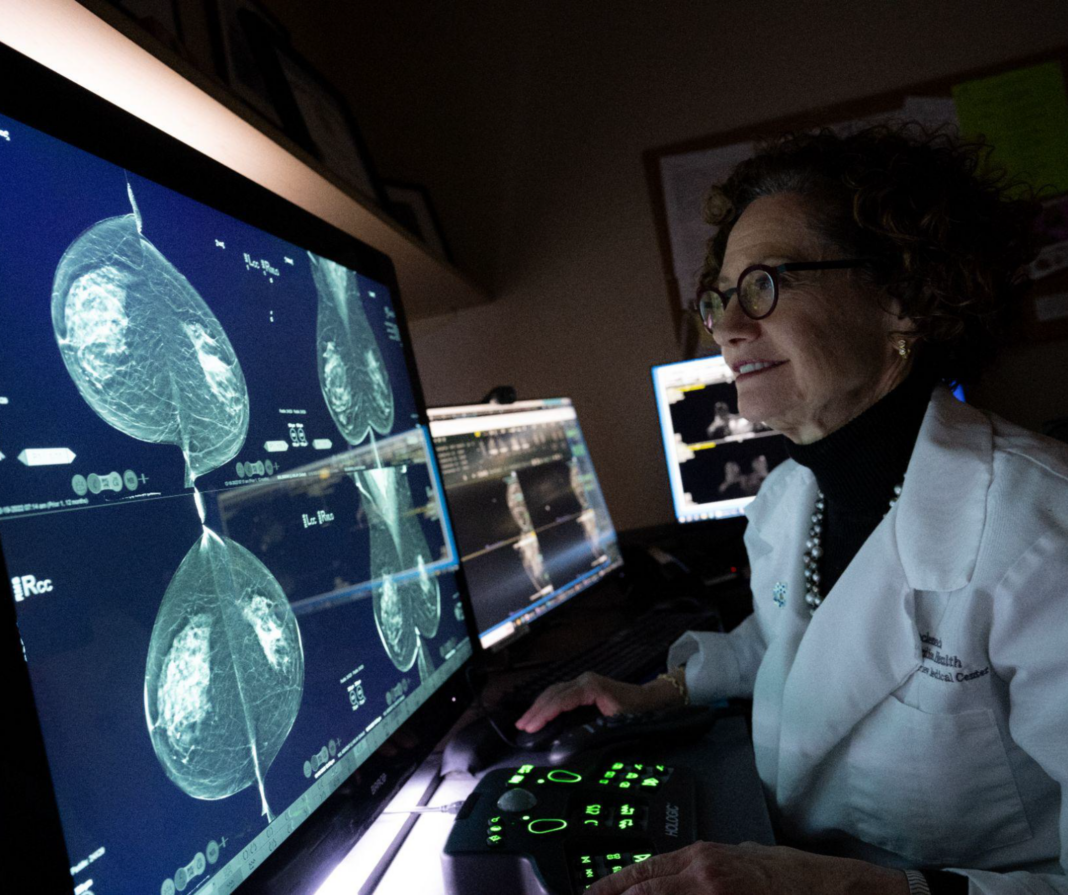Hackensack Meridian Health Experts and patients available for October Breast Cancer Awareness Month Stories
This year alone 297,790 women will be diagnosed with breast cancer in the United States. It is the most common form of cancer for American women. It is also the second leading cause of death from cancer among women following lung cancer. Innovations in both screenings and treatment are turning the tide in the battle against breast cancer.
Doctors from Hackensack Meridian Health and the John Theurer Cancer Center are available to talk about the significance screenings and treatments this October, breast cancer awareness month on a variety of topics including:
● Breast Density Notifications Now Required For All Mammograms –
As of September 2024 the U.S. Food and Drug Administration recently ruled that radiology and mammography facilities must also notify patients about the density of a woman’s breasts. This new addition, which Hackensack Meridian Health has already been sharing with patients, is designed to empower women across the country with more knowledge about breast health to make informed decisions about their care.
“Breast density refers to the proportion of fatty tissue versus glandular and fibrous tissue in your breasts,” explained Dr. Harriet Borofsky, breast imaging specialist at Hackensack Meridian Bayshore Medical Center and Riverview Medical Center. “Women with dense breasts have more glandular and fibrous tissue, which appears white on mammograms, making it harder to detect potential abnormalities.” This increased density can sometimes mask small tumors, making them more difficult to identify during a mammogram.
While dense breasts are common, affecting about 40% of women, knowing your breast
density can help you and your doctor make informed decisions about your screening and
follow-up care.
● New Study: 3D Mammograms Better Diagnose Cancer In Early Stages –
A new study by Yale School of Medicine found newer 3D mammograms are more effective at detecting breast cancer, and can lead to improved outcomes for patients. The study looked at more than 272,000 breast cancer screenings over 13 years. It found 3D
mammograms known as tomosynthesis identified breast cancer in earlier stages and
at higher rates than traditional mammograms. The 3D technology also reduced false positives, which often send women for additional testing including ultrasounds and biopsies. 3D-Mammography, also known as Digital Breast Tomosynthesis, is an advancement of Digital Mammography that utilizes multiple exposures as the X-ray tube moves in an arc of the compressed breast. The data acquired is then reformatted by the computer to show thin slices through the breast, improving overall resolution, accuracy and detection, all at the same radiation dose and time.
Hackensack Meridian Health offers 3D mammography as well as contrast enhanced
mammography. Contrast Enhanced Mammography (CEM) an emerging advanced
technology that uniquely combines the exceptional high-resolution imaging of Digital
Mammography and 3D Mammography with functional imaging provided by contrast. CEM is
a fast and safe, diagnostic mammogram with contrast. It can be completed in less than 15
minutes after consulting with your physician. Approved by the FDA, this technology highlights areas of unusual blood flow patterns that can indicate malignancy. Early studies of CEM in screening women with dense breasts have shown the potential benefit of CEM in the detection of breast cancer.
● Targeted Specialized Treatment Giving Patients New Hope – Breast cancer is no longer a one-size-fits-all diagnosis like it was years ago. Through extensive research, we now know
how genes and cells behave in various cancer subtypes – ER-positive, HER2-positive, ER-negative, HER2-negative, Triple negative, etc. As a result, the one-size-fits-all treatment
approach has been transformed into a personalized treatment arsenal that keeps getting better with each passing year.
Doctors can now categorize breast tumors by cell type, opening the door for treatment
combinations tailored toward each. Chemo, once the mainstay treatment, is now used in
smaller amounts or not at all. Today, treatments including targeted therapies, precision
medicine and minimally invasive and image-guided therapies are tailored to the individual
and the special characteristics of each breast cancer.
● The Surreal Story of a Mother and Daughter Who Fought Breast Cancer Diagnoses
Together – Merlise Diaz, 48, and her daughter, Leslie Grullon, 32, were diagnosed with triple negative breast cancer and HER2-positive breast cancer three years apart
and have no other confirmed family history of the disease. When Diaz received her stage two diagnosis at 44, genetic testing was performed to help guide treatment options. A negative test would lean toward standard options and a positive one might warrant
additional drug therapy. Diaz’s tests were negative, meaning they showed normal findings with no gene mutations that increase the risk of breast cancer. Grullon and Diaz both felt relieved that the risk to Grullon would be less. But one day she discovered a strange lump while cleaning. This is their story.
● Prone Radiation Offering More Targeted Treatment For Some Patients – To offer more targeted radiation to breast cancer patients, and mitigate the amount of normal tissue exposed to radiation, Hackensack Meridian Health offers prone radiation. Prone breast radiation therapy is a unique approach to treating breast cancer.

Radiation is administered on a specially designed breast board to help a woman lie
comfortably in the prone position – typically on her stomach, with her breast hanging away
from her body. In this position, radiation beams can be delivered within a few millimeters of precision, allowing the physician to protect surrounding tissue and nearby organs like the heart and lungs. This lowers the risks for immediate side effects and for future complications like heart disease. The procedure is typically recommended for patients with larger breasts who do not require radiation to the lymph nodes closest to the breast in the armpit area.
52-year old Eileen Merz, is one of the many patients Hackensack Meridian Health has
treated with radiation in the prone position for invasive ductal carcinoma in her right breast. Although her cancer was stage 1, genetic testing found her cancer to be extremely
aggressive and required targeted prone radiation.
● New Cancer Risk & Early Cancer Detection ProgramIt is well established that earlier diagnosis translates into better outcomes. For example, the 5-year survival for cancers
such as pancreatic and lung – typically diagnosed late – goes from 10-15% in advanced stage cancer to over 80-85% survival in early stage. In addition, roughly 10% of all cancers are hereditary with known genetic risk factors. Hackensack Meridian Health’s (HMH) John Theurer Cancer Center launched the first of its kind in NJ cancer risk and early cancer detection program, designed to better identify the risk of cancer in individuals and enable earlier diagnosis.
Individuals will complete a short but comprehensive cancer risk assessment from CancerIQ,
an oncology-focused precision health platform. The easy-to-use tool asks people simple
questions about their personal and family medical history as well as lifestyle factors. If the
assessment flags a patient as having a higher risk of cancer, team members will personally
speak with the person about their options and design a personalized plan for early cancer
detection and prevention.

It is now demonstrated that cancer cells can release in the blood very early on pieces of
genetic materials (from DNA or RNA) that can be detected through what is now referred to
as blood testing or liquid biopsies. These new developments in molecular cancer screening
in the blood have the potential to help with early cancer detection or detection of persistent
minimal residual cancer cells (after treatment). This offers new opportunities and help in
intercepting cancer (prevent occurrence, detect earlier or prevent recurrence).
Hackensack Meridian Health physicians and patients are available for stories on the above
topics and more this October, breast cancer awareness month.
SOURCE; Hackensack Meridian Health








